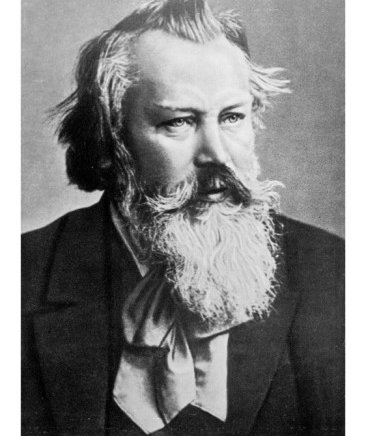
Johannes Brahms
German composer and pianist. In childhood he was taught violin by his father, piano by Otto Cossel, and composing by Eduard Marxsen. Public début as pianist, Hamburg, September 1848. Earned living from age of 13 by teaching and by playing at theatres, for dances, and in taverns frequented by prostitutes. In 1853 engaged to accompany the Hungarien violinist virtuoso Reményi on a concert tour. While in Hanover met Joachim, who was impressed by youth's compositions and gave him letters of introduction to Liszt and Schumann. Latter hailed him as genius in an article entitled Neue Bahnen (New Paths) in the Neue Zeitschrift für Musik of 28 October 1853. After Schumann's death in 1856, Brahms became piano teacher to Princess Friederike and choral conductor at little court of Lippe-Detmold 1857-60, unexacting duties which left him time for composition. In 1860 signed famous manifesto opposing ‘new music’ methods adopted by Liszt and his followers and thereafter was regarded as the polar opposite to Wagnerian school in German music. His first piano concert had been a failure at its premiere in Leipzig on 27 January 1859 and it was not until nearly 10 years later, with Ein Deutsches Requiem, that he achieved a major success. In 1862 first visited Vienna, where he lived for most of next 35 years. Conducting Vienna Singakademie for 1863-4 season, and in 1872 succeeded Rubinstein as art director of Gesellschaft der Musikfreunde, holding post until 1875. Thereafter his life was uneventful except for composition of major works and tours as pianist. Brahms was a master in every form of composition except opera, which he never attempted. He eschewed programme-music and wrote in the classical forms, yet his nature was essentially romantic. His four symphonies are superb examples of his devotion to classical musical architecture within which he introduced many novel thematic developments. In the chamber music practically every work is a masterpiece; his four concerts are indispensable features of concert life, and his songs, numbering nearly 200, are closely based on German folk-songs but are polished and refined to a highly sophisticated degree.